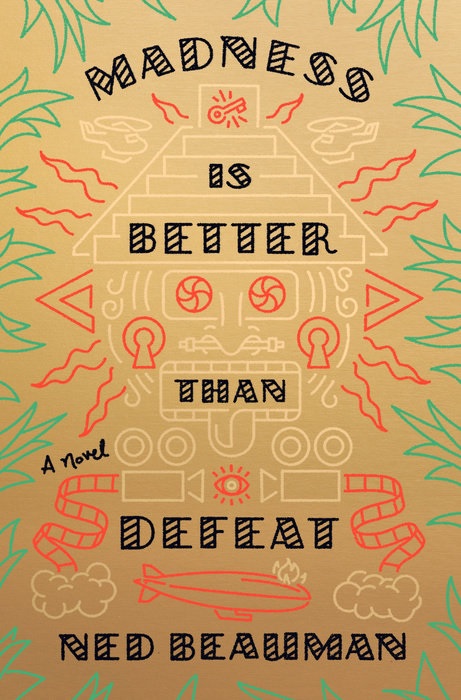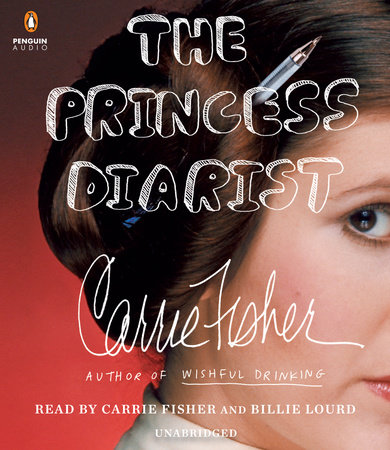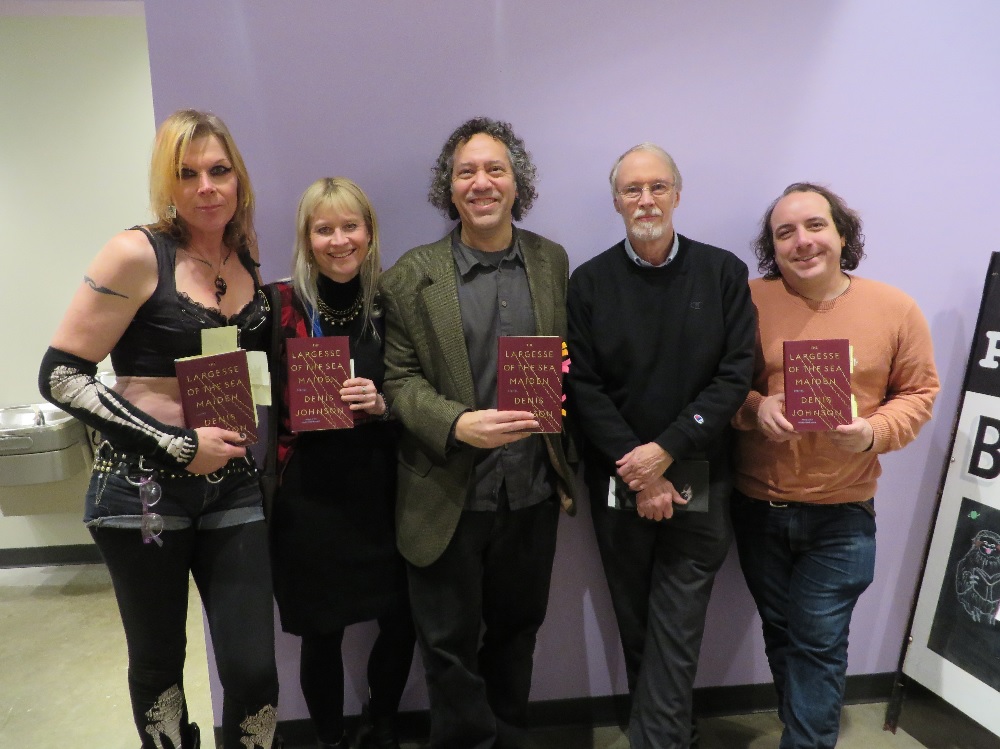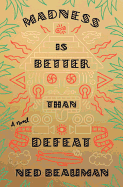 In a madcap yet cerebral thriller, London author Ned Beauman (Boxer, Beetle) riffs on Hollywood's Golden Age as well as the histories of natural disaster and mental instability surrounding jungle epics like Apocalypse Now.
In a madcap yet cerebral thriller, London author Ned Beauman (Boxer, Beetle) riffs on Hollywood's Golden Age as well as the histories of natural disaster and mental instability surrounding jungle epics like Apocalypse Now.
Zonulet, a journalist turned CIA agent turned rogue, attempts to explain to an agency tribunal how two expeditions to a Mayan temple in 1938 became a decades-long standoff deep in the Honduran jungle. His report opens with a gladiatorial octopus shoving its tentacles down the throat and up the rectum of the diver trying to flip the creature out of its tank. Laying long odds on said octopus is Elias Coehorn, Jr., degenerate son of a business tycoon with a heart so cold "you'd expect any woman who submitted to an injection of his animal fluids to be frozen solid from the cervix outward."
Young Elias, though, is dragged from the gambling floor back to his father's office, where Elias Sr. informs him that he will voyage to Honduras, disassemble a hidden temple and ship it back to New York City--or face disinheritance. At the same time, Jervis Whelt, a young film school professor--a nobody--who believes one basic story formula lies behind every successful film, is appointed director of a jungle epic by powerful and reclusive Hollywood mogul Arnold Spindler. Spindler sends Whelt and his cast and crew to Honduras to shoot on location at the very same temple, but they arrive to find Coehorn's team already disassembling it. Neither Whelt nor Coehorn will back down on their different plans for the temple, and so both teams simply stay in the jungle, where they form two roughly cobbled rival nations who fashion dictatorships and democracies, bicker and reproduce as the years pass.
Despite a huge cast, varying from zany to sympathetic to evil as the day is long, Beauman avoids an overstuffed mess by leaving no one unconnected from the central narrative and souping up his writing with a liberal dose of crackling one-liners. Just as the plot buoys the characters, so, too, do their eccentricities make the insanity of choosing to remain in the jungle for someone else's unachievable mission seem completely plausible. The resultant experience feels akin to taking a psychotropic drug via reading, as appears to be Beauman's cheerful intention. Reminiscent of the Coen Brothers at their best, Madness Is Better Than Defeat is a strange, brilliant and satisfying trip to a more entertaining version of history. --Jaclyn Fulwood, blogger at Infinite Reads
Shelf Talker: With sometimes hilarious, sometimes catastrophic results, two expeditions from 1938 New York collide at a Mayan temple in Honduras that exerts a strange pull on all who learn of it.
 "We don't tend to think long-term. Now, I am not anti-Amazon.... However, I am pro keeping humans in the loop to help with a lot of the decisions that get made. I'm also very much pro-independent bookstores. I believe strongly in the value proposition of a local bookseller. However, I'm a pragmatist, right? So, while I know you're doing well today, my concern is that things change, and I'm not entirely convinced that you're prepared for the next 10 years, the next 20 years. Which means that we all have to stop and think more carefully about our automated future and that very much includes you.... Start thinking like a futurist."
"We don't tend to think long-term. Now, I am not anti-Amazon.... However, I am pro keeping humans in the loop to help with a lot of the decisions that get made. I'm also very much pro-independent bookstores. I believe strongly in the value proposition of a local bookseller. However, I'm a pragmatist, right? So, while I know you're doing well today, my concern is that things change, and I'm not entirely convinced that you're prepared for the next 10 years, the next 20 years. Which means that we all have to stop and think more carefully about our automated future and that very much includes you.... Start thinking like a futurist."




IPC.0204.S3.INDIEPRESSMONTHCONTEST.gif)




 New York City's
New York City's 
 Cover to Cover Books for Young Readers
Cover to Cover Books for Young Readers
 Walmart and Rakuten Kobo have entered a
Walmart and Rakuten Kobo have entered a IPC.0211.T4.INDIEPRESSMONTH.gif)
 The Princess Diarist by Carrie Fisher, narrated by the author and Billie Lourd (Penguin Audio) won the Best Spoken Word Album at last night's Grammy Awards.
The Princess Diarist by Carrie Fisher, narrated by the author and Billie Lourd (Penguin Audio) won the Best Spoken Word Album at last night's Grammy Awards.
 Authors and musicians gathered recently at
Authors and musicians gathered recently at 
 Unafraid: Living with Courage and Hope in Uncertain Times
Unafraid: Living with Courage and Hope in Uncertain Times In a madcap yet cerebral thriller, London author Ned Beauman (
In a madcap yet cerebral thriller, London author Ned Beauman (